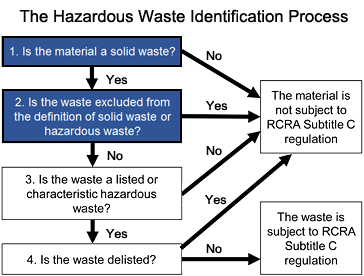The Best Guide To Reclaim Waste
The Best Guide To Reclaim Waste
Blog Article
How Reclaim Waste can Save You Time, Stress, and Money.
Table of ContentsThe Buzz on Reclaim WasteThe 8-Second Trick For Reclaim Waste7 Simple Techniques For Reclaim WasteAll about Reclaim WasteReclaim Waste Things To Know Before You Buy
Domestic sewage waste refers to the waste and products from a domestic septic storage tank. The correct monitoring and disposal of residential sewer waste call for liquid waste to be moved to a sewer therapy plant where the correct approaches and devices are applied to cleanse and dispose of waste.
Commercial waste commonly consists of potential hazards, such as flammable products or a blend of liquid and strong waste items, and needs an advanced and comprehensive disposal process. The disposal of commercial waste usually entails the purification of waste prior to transportation to make certain risk-free and correct disposal. Hazardous waste is produced from byproducts and runoff of industrial procedures and manufacturing.
This type of waste can not use the same sewage administration transport or processes as septic or business liquids. The hazardous waste monitoring procedure requires the inspection and screening of fluid waste prior to it goes through the disposal procedure (industrial wastewater treatment). Overflow waste is the liquid waste that originates from drainage and excess stormwater in highly populated areas or cities
Runoff waste can create contamination and flooding if not taken care of properly. Find out more about drain cleansing and waste management. Making certain correct waste monitoring can prevent catastrophes and lower environmental injury. Both people in property setups and specialists in industrial or production sectors can take advantage of recognizing the procedures and laws of liquid waste management.
Rumored Buzz on Reclaim Waste
Contact PROS Solutions today to find out about our waste administration and disposal solutions and the correct methods to look after the fluid waste you create.
(http://peterjackson.mee.nu/do_you_ever_have_a_dream#c2256)This supposed 'wastewater' is not only an important resource however, after treatment, will certainly be released to our land, rivers or the sea. Utilized water from toilets, showers, baths, kitchen area sinks, laundries and commercial processes is recognized as wastewater.

water made use of to cool machinery or tidy plant and tools). Stormwater, a type of wastewater, is overflow that streams from farming and metropolitan locations such as roofings, parks, yards, roads, courses and seamless gutters into stormwater drains pipes, after rain. Stormwater flows neglected directly to regional creeks or rivers, at some point reaching the ocean.
The Ultimate Guide To Reclaim Waste
In Queensland, a lot of wastewater is treated at sewage therapy plants. Wastewater is delivered from residential or industrial sites through a system of sewage systems and pump stations, referred to as sewage reticulation, to a sewage treatment plant. City governments build, maintain and operate most sewer treatment plants. Operators are accredited under the Environmental Management Act 1994 to release treated wastewater at an acceptable environmental requirement into rivers.
The Division of Natural Resources encourages city governments about handling, operating and preserving sewerage systems and treatment plants. In unsewered areas, city governments might call for homeowners to set up individual or home sewage treatment systems to deal with residential wastewater from commodes, kitchens, shower rooms and laundries. The Division of Natural Resources authorizes the use of household systems when they are verified to be reliable.
The majority of stormwater obtains no treatment. In some new subdivisions, treatment of some stormwater to get rid of trash, sand and crushed rock has begun utilizing gross pollutant catches. Wastewater therapy happens in 4 stages: Eliminates solid issue. Bigger solids, such as plastics and other items incorrectly released to sewage systems, are eliminated when wastewater is gone through displays.
Uses little living microorganisms knows as micro-organisms to break down and eliminate remaining dissolved wastes and great particles. Micro-organisms and wastes are incorporated in the sludge.
Reclaim Waste Fundamentals Explained
Nutrient elimination is not readily available at all sewage therapy plants since it needs expensive specialist equipment. Clear liquid effluent produced after therapy might still contain disease-causing micro-organisms - liquid waste removal.

This normally suggests wastewater needs to be treated or impurities eliminated before it can be discharged to rivers. The majority of wastewater streams right into the sewage system. Under the Act, city governments provide authorizations and permits for environmentally pertinent activities (Periods) including wastewater releases that might have a regional effect. The department carries out authorizations and licences to ERAs including wastewater releases that might have a local or statewide effect.
The Basic Principles Of Reclaim Waste
Otherwise, examples are considered laboratory analysis. Usually several tests are required to develop the degrees of each of the various toxins such as oils, heavy metals and chemicals in water. Surveillance gives accurate info regarding water high quality and can verify that licence conditions are being fulfilled. The details obtained via surveillance supplies the basis for making water quality decisions.
Report this page